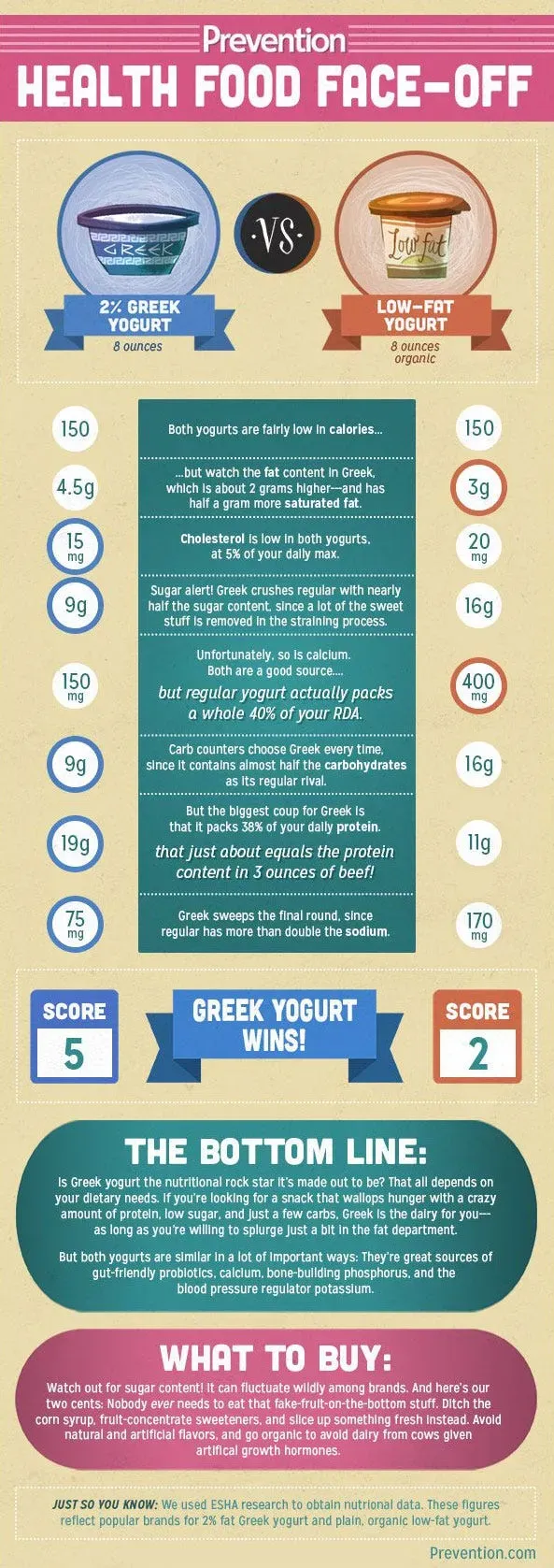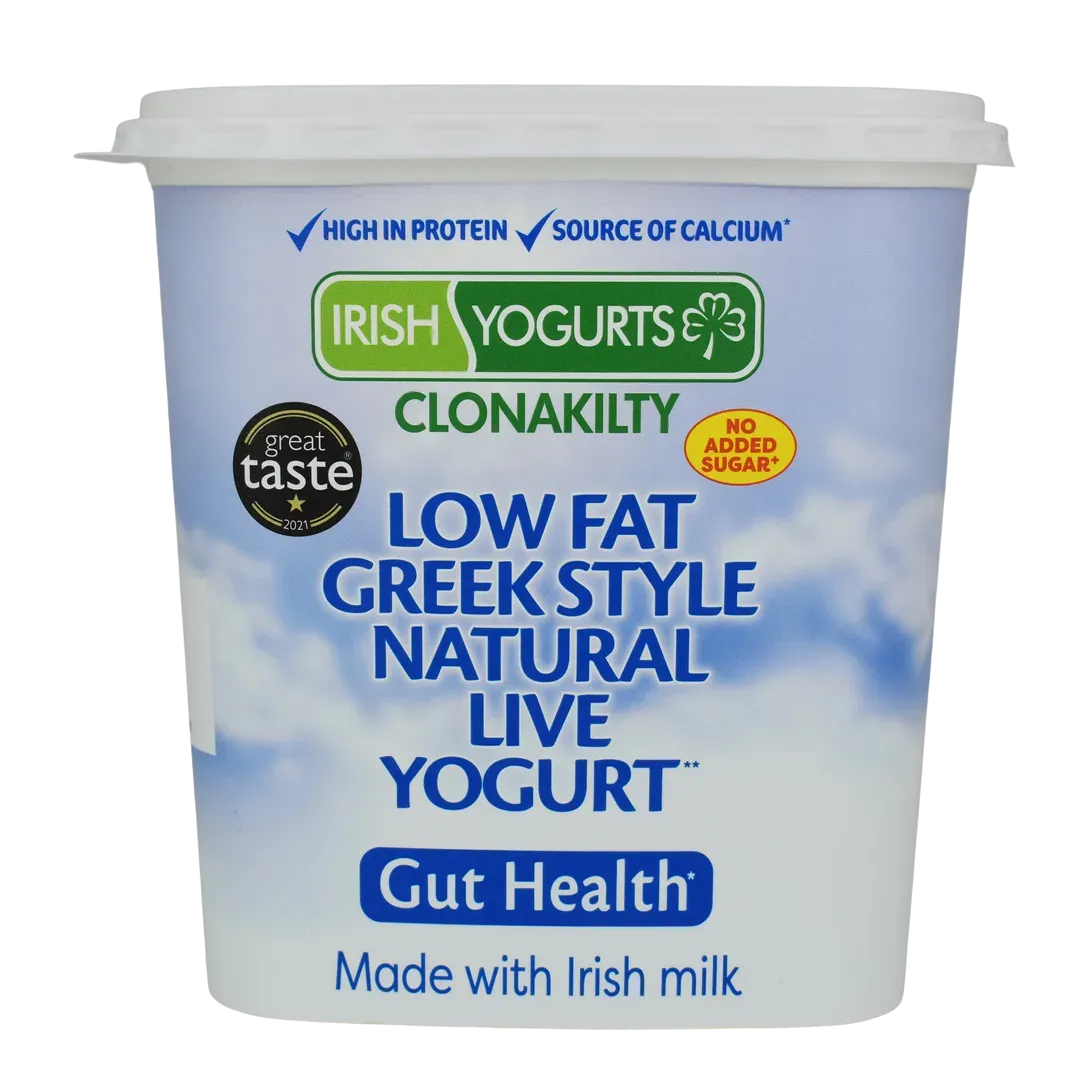Table of Contents
You're hitting the gym, watching what you eat, and probably looking for smart swaps to help shed those extra pounds. Chances are, Greek yogurt is already on your radar. It's a protein powerhouse, everyone says so. But when you're standing in the dairy aisle, faced with what feels like a hundred options, one question pops up: is low fat greek yogurt good for weight loss? It seems like the obvious choice, right? Less fat must mean less calories, which should mean easier weight loss. But is it really that simple? Or is there more to the story than just the fat content? We're going to cut through the noise and look at what actually matters when it comes to picking your yogurt for weight loss goals. We'll compare nonfat and full-fat versions side-by-side, diving into the calorie counts, the protein punch (which is key for keeping you full), and even peek at what else might be lurking in that container, like added sugars or thickeners. By the end of this, you'll have a clearer picture of whether reaching for the low-fat tub is truly the best move for your weight loss journey.
What Makes Greek Yogurt Different?
It's All About the Strain
so you see Greek yogurt everywhere now, right? It's not just a fad; there's a real reason it's taken over dairy shelves. The main thing that sets it apart from your standard, run-of-the-mill yogurt is the process. Regular yogurt gets fermented, and then it's pretty much good to go. But Greek yogurt? It goes through an extra step. It's strained. Not just a little bit, but significantly. They strain out most of the whey, which is the liquid part of milk that remains after curdling, and also a lot of the lactose. This extra straining step is the secret sauce, or maybe the secret lack-of-sauce, that makes it unique.
The Payoff: Thicker and More Protein
What does all that straining actually do? Think about it: you're taking out liquid. So, what's left is much more concentrated. The texture becomes incredibly thick and creamy, almost like a soft cheese in some cases. It’s way denser than regular yogurt. But the big win, especially if you're thinking about things like feeling full or building muscle, is the protein. Because the whey (which has lactose) is strained off, the protein content per serving goes way up compared to traditional yogurt. This is why people rave about Greek yogurt for satiety; that protein hangs around in your stomach longer.
Here's a quick look at how straining changes things:
- Removes most of the whey (liquid).
- Filters out much of the lactose (milk sugar).
- Results in a much thicker texture.
- Significantly increases protein concentration.
- Often leads to a tangier flavor profile.
Texture and Taste Implications
That thicker texture isn't just for show. It changes how you can use Greek yogurt. You can dollop it like sour cream, use it in dips without it being watery, or even bake with it as a substitute for heavier dairy like cream cheese or mayo in some recipes. The flavor also shifts. With less lactose, the natural tang of the fermentation process comes through more prominently. Some people love this sharp, slightly sour taste; others prefer it mixed with fruit or honey to balance it out. This distinct texture and flavor profile, born from that simple straining process, is truly what makes Greek yogurt different and why it's become such a versatile staple.
Breaking Down the Nutrition: Nonfat vs. FullFat Greek Yogurt

Breaking Down the Nutrition: Nonfat vs. FullFat Greek Yogurt
The Calorie and Fat Divide
Alright, so we know Greek yogurt is strained and packed with protein. Now let's get down to the nitty-gritty – the nutrition label. This is where the nonfat and full-fat versions really diverge, and it's the key difference that makes people wonder about weight loss. The most obvious split is in the calorie count and the fat content. Nonfat Greek yogurt is made from skim milk, meaning almost all the fat has been removed before fermentation and straining. Full-fat, on the other hand, uses whole milk, which keeps the natural milk fat in the mix. This isn't rocket science, but seeing the numbers side-by-side makes it clear.
Is Low Fat Greek Yogurt Good for Weight Loss? Protein, Calories, and Satiety

Is Low Fat Greek Yogurt Good for Weight Loss? Protein, Calories, and Satiety
Counting the Calories: The Low-Fat Advantage?
let's get straight to the point: calorie count matters when you're trying to drop pounds. This is often where the argument for nonfat or low-fat Greek yogurt comes in. Since fat is calorie-dense (about 9 calories per gram compared to 4 for protein and carbs), removing it naturally slashes the calorie count. A standard 6-ounce serving of plain nonfat Greek yogurt usually clocks in around 90-100 calories. The same size serving of full-fat Greek yogurt? You're looking closer to 180-200 calories. If your entire weight loss strategy revolves around hitting a specific calorie target each day, swapping full-fat for low-fat or nonfat can create a significant deficit over time, assuming everything else in your diet stays consistent. It's simple math, really. Fewer calories in, potentially more weight loss out, assuming you burn more than you consume.
The Protein Punch: Keeping You Full
Calories aren't the only player, though. One of the biggest reasons people turn to Greek yogurt for weight loss is its protein content. And here's a crucial point: the protein levels in nonfat and full-fat Greek yogurt are surprisingly similar. Both typically offer around 18-20 grams of protein per 6-ounce serving. Protein is a rockstar for satiety – it takes longer to digest than carbs or fat, which helps you feel full and satisfied for longer. This can prevent those sneaky mid-afternoon snack attacks that derail your progress. So, while the low-fat version saves you calories, you're not sacrificing that powerful protein benefit. This is why the question, is low fat greek yogurt good for weight loss, often gets a 'yes' – you get the satiety benefits of high protein with fewer calories from fat.
Yogurt Type (6oz serving) | Approx. Calories | Approx. Protein | Approx. Fat |
|---|---|---|---|
Nonfat Greek Yogurt (Plain) | 90-100 | 18-20g | 0g |
Full-Fat Greek Yogurt (Plain) | 180-200 | 18-20g | 9-11g |
Beyond the Fat: Additives and the Bottom Line on Is Low Fat Greek Yogurt Good for Weight Loss

Beyond the Fat: Additives and the Bottom Line on Is Low Fat Greek Yogurt Good for Weight Loss
Is Nonfat Always Cleaner? Peeking at the Ingredients List
so you're ditching the fat to save calories, which seems smart for weight loss. But here's the catch many people miss when asking is low fat greek yogurt good for weight loss: sometimes, when manufacturers take something out (like fat), they put other things in to make up for the change in texture and flavor. Fat gives yogurt that creamy, rich mouthfeel. Without it, nonfat yogurt can feel a bit thin or even watery. To fix this, companies might add thickeners like starches, gums (like guar gum or carrageenan), or pectin. They might also pump up the flavor with artificial sweeteners or extra sugar to compensate for the lack of richness that fat provides. It's worth flipping that container around and scanning the ingredient list. Ideally, you want a list that's short and sweet: milk and live active cultures. Anything beyond that is something added.
Fat's Role in Satisfaction and Absorption
Now, let's talk about fat for a second. While it's calorie-dense, dietary fat isn't the devil, even when considering if low fat greek yogurt good for weight loss. It plays a role in making you feel satisfied after eating. A little bit of fat can help slow down digestion, which, combined with the protein, can contribute to that feeling of fullness. Plus, some vitamins, like A, D, E, and K, are fat-soluble. This means your body needs fat to properly absorb them. While yogurt isn't typically a huge source of these vitamins, it's a reminder that dietary fat has functions beyond just adding calories. Cutting fat completely might leave you feeling less satisfied, potentially leading you to snack more later.
So, when considering the nonfat option for weight loss, ask yourself:
- Does this nonfat yogurt have a bunch of added thickeners or sweeteners?
- Will a serving of nonfat yogurt actually keep me full, or will I be hungry again in an hour?
- Am I getting healthy fats from other sources in my diet?
The Bottom Line: It Depends on Your Plate (and Preferences)
So, is low fat greek yogurt good for weight loss? The short answer is, it absolutely *can* be. It offers that excellent protein content with significantly fewer calories than its full-fat counterpart, which is a straightforward advantage in creating a calorie deficit. However, it's not the *only* factor. If the nonfat version you choose is loaded with added sugar or artificial ingredients, that might outweigh the benefit of lower fat. A full-fat plain Greek yogurt, eaten in moderation or as part of a meal with plenty of fiber, can also fit into a weight loss plan because the fat and protein together are incredibly satisfying. The best choice depends on your overall diet, your personal preferences for taste and texture, and whether you're diligent about reading ingredient labels. Don't just grab the "low-fat" option blindly; consider what else is in the tub and how it fits into your daily calorie and nutrient goals.
The Real Deal on Greek Yogurt and Weight Loss
So, is low fat greek yogurt good for weight loss? It can be a useful tool, primarily because of its high protein content, which helps with satiety and muscle maintenance. Nonfat versions offer a calorie advantage if that's your primary focus, cutting down on fat calories. However, full-fat isn't inherently bad; its saturated fat contribution is often minor in a balanced diet, and it might offer better texture and flavor without added thickeners. The key takeaway isn't just about the fat percentage. It's about the total calories, the protein per serving, and critically, what else is in the container – ditch the added sugars. Your choice ultimately hinges on your overall calorie goals, dietary fat intake from other sources, and what fits best into your eating pattern while keeping you satisfied. Read the label, understand what you're eating, and pick the yogurt that supports your individual weight loss strategy without relying on marketing hype.
